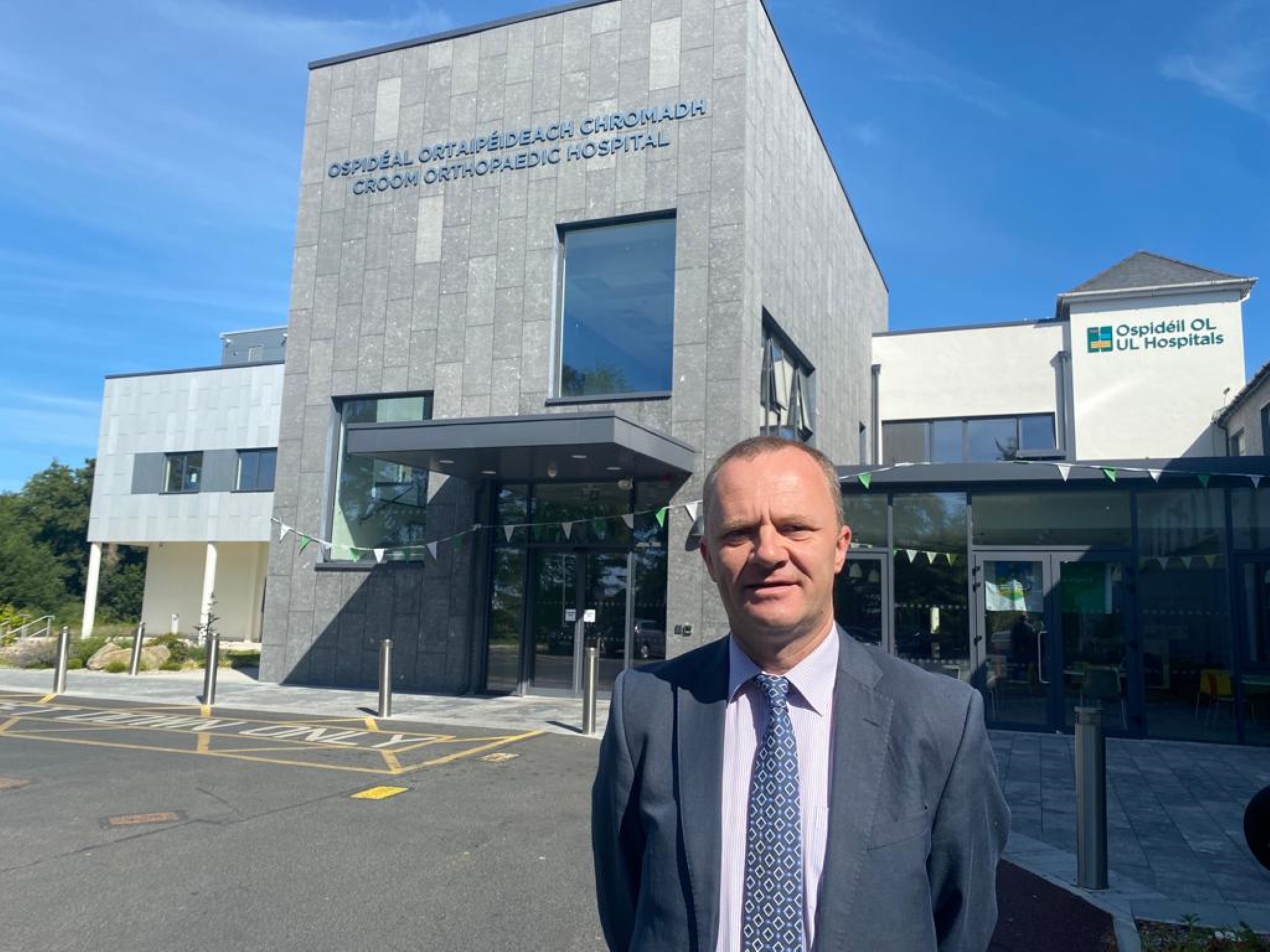Bridging the knowledge gap to better pain management
By Professor Dominic Harmon, Consultant in Pain Management/Anaesthesia at UL Hospitals Group and Adjunct Professor, University of Limerick

Pain is a natural part of life, coming to us all at different stages of our lives, most commonly after injuries, cancer and surgeries. It is also associated with medical conditions and normal experiences such as childbirth and the ageing process.
An estimated two of every 10 Irish people in this country, men and women, live with chronic pain. Poorly managed pain can have a big impact on patients, their families and society as a whole. The biological symptom of pain alone can cause distress, but there are multiple other impacts, including physical impacts, with loss of function; psychological impacts, with shame, distress and anger; and social impacts, with reduced participation, lack of self-esteem and loss of sense of identity.
In 2007, the relief of pain was deemed a human right. But this has created multiple problems for society, not least the effects of the international opioid crisis. Amid the myths arising from the right to adequate pain relief, anti-inflammatories such as Difene got undeserved bad press, and we were led to believe that opioids were safe. There needs to be good health professional knowledge in how to use analgesics appropriately. Finding the correct source and mechanism of pain allows for appropriate treatments without the need for the ‘plaster’ effect of opioids. Opioids have a role but only with correct diagnosis and appropriate use via well-trained healthcare providers.
Pain management services in the Mid-West Region
The Pain Management services of UL Hospital Group provide comprehensive care for acute (e.g. post-surgical/injuries/medical conditions) and chronic pain patients across the Mid-West and beyond. Many patients present with several pain sources. Assessment and treatment requires specialised skilled care by a team of doctors, specialist nurses, psychologists, physiotherapists, music therapy, pharmacists, and other allied health staff.
The dedicated Pain Management Centre in Croom Orthopaedic Hospital has been developed to meet this need. The well designed clinical space and treatment areas have enhanced the patient experience improving access to and journey through treatment. Our multidisciplinary approach has facilitated appropriate diagnosis, resulting in the best treatment outcomes and continued improvements in individualised patient care.
Bridging the knowledge gap in Pain Management
The key to successful pain management is to improve awareness of holistic pain care among patients, communities and policy makers. Neck pain is the most common cause of disability in Ireland. Society must be better educated in how self-awareness can prevent the development of chronic pain; in how actions can hinder the journey towards being pain-free. There is no magic cure, but there is hope, which comes from better understanding of the value of true diagnosis
The UL Hospitals Group team is to the fore in raising awareness among our stakeholders, through information evenings with patients and families, roundtable discussions with GPs, and strategic planning meetings with professional medical organisations. Our goal is to inform and empower patients who have lost part of their independence due to pain.
While we work to keep pain care on top of the health service agenda, we must also remember that pain can be a normal part of life. You cannot expect to run a marathon or win an All-Ireland medal without the ability to endure the pain that sometimes comes with getting there. Emotional pain can be just as difficult as the physical. We aim to help with both, but expectations must be realistic and achievable.
Pain Assessment
Giving pain a number from 1 to 10 in severity doesn’t provide a reliable picture of a person’s suffering. Listening to a person’s experience helps build trust and supports a therapeutic relationship. Clinical skills are crucial, but helping people understand the cause of pain is more effective than any analgesic. For this reason we gather as much information as possible and look at every detail, including MRI and Xray imaging when required. Finally, how a person responds to a pain relief procedure will help clarify if the diagnosis made is correct. The earlier a diagnosis can be given, the better, creating the opportunity for early treatment and reducing distress.
Tracking Pain Management in the Mid-West and new treatments
Detailed multidisciplinary triage ensures patients get access to the appropriate service at the suitable time. This reduces the number of appointments necessary before treatment is commenced. Our dedicated Pain Management Centre enables earlier access to resources and disciplines. This has reduced the need for multiple referrals, minimising waste and enabling more detailed views of assessment.
Our holistic patient care model now also supports Self-Management Programs, Multidisciplinary Pain Management programs and Music therapy. The pain research group at UL Hospitals Group and the UL School of Medicine has the largest academic output in the country supporting better pain care. We are helping to develop new pain management curriculums for undergraduate medical students and other medical professionals to support the professionals of the future in the appropriate assessment and management of pain.
What we can do to improve the management of pain?
- Recognise that pain can be a part of life
- There are better outcomes with an accurate diagnosis than with analgesics
- Diagnosis of the cause of pain is crucial
- To understand the impact of pain, clinicians must understand the suffering
- Be aware of how we combat pain will define the impact it will have on our lives

